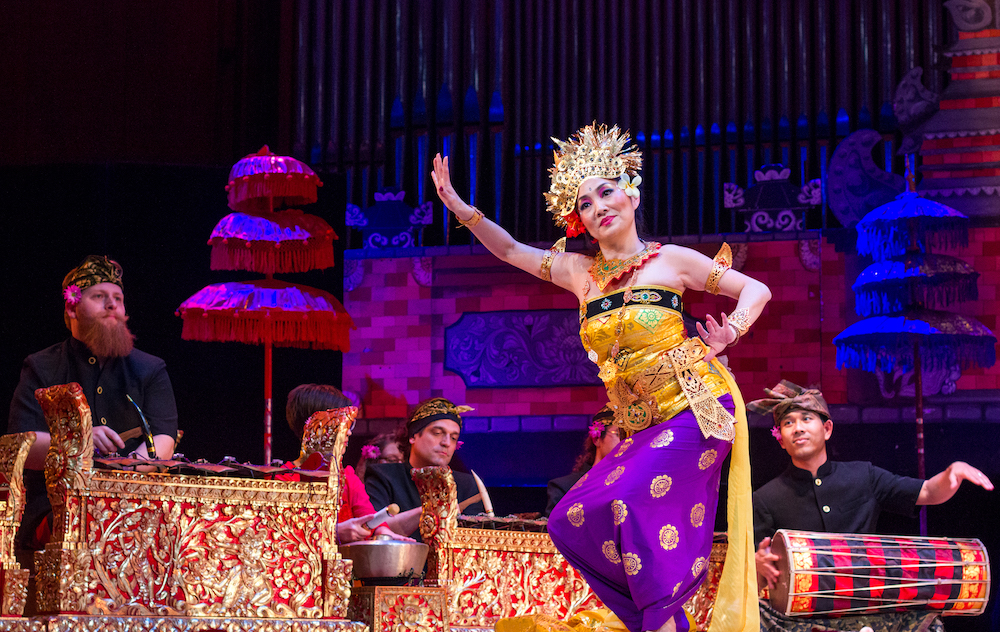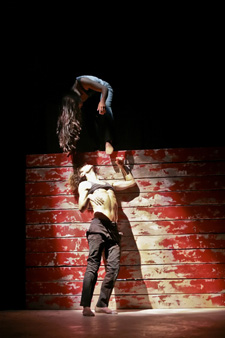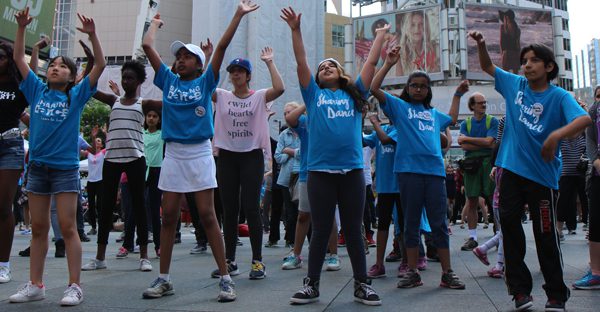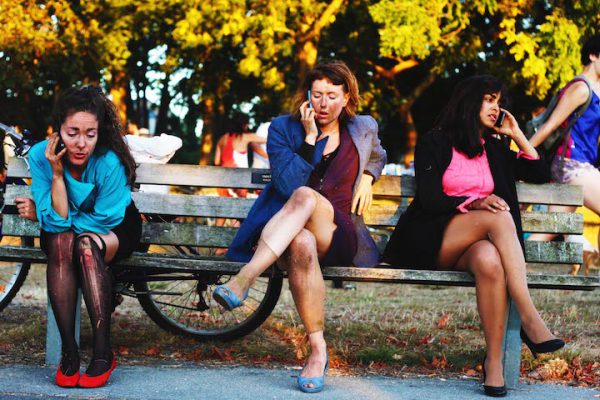Based in Montréal, Festival Accès Asie (FAA) is a multidisciplinary, all-encompassing celebration of Asian arts and culture featuring presentations of dance, theatre, music and visual arts, among many other art forms. As described by the artistic and development director, Khosro Berahmandi, Festival Accès Asie wants “to be the voice of Asian Canadian artists and present work that reflects on their identity and experience.” The longest continuously running Asian arts festival in Canada, it was poised to mark a milestone twenty-fifth anniversary before COVID-19 struck, at which point the coordinators had to think fast. While some live performances have been postponed, the festival was able to present most of its programming digitally during its run from April 30 through May 31, 2020.
Dylan Schoenmakers spoke with members of the Festival Accès Asie team — Mélanie Jouet (coordinator), Jade Barshee (head of communications) and Berahmandi — to learn how they were able to reimagine this year’s festival for a virtual environment in uncertain times.
Dylan Schoenmakers How quickly did you need to make the decision to move from a physical festival to a virtual one?
Mélanie Jouet At the beginning (March), we were just worried about our international activities [being] cancelled because of visa issues with the closed borders. When the government banned shows for more than 100 people, all of our venue reservations started to be cancelled, and we had no choice but to [find] an alternative. We had a month to adapt the festival, so we had to [change] our expectations. We are very grateful to the artists. Almost all responded very quickly and with enthusiasm.
DS What motivated you to offer a virtual festival instead of cancelling?
MJ We were ready. A lot of effort had been invested this year for new visuals and communication tools, and the team worked really hard. It would have been a bit depressing to just give up. In addition, it’s the twenty-fifth anniversary edition of the festival, and we still wanted to celebrate it. It was, in fact, more important with this crisis. If the artists agreed to participate, there was no reason to cancel.
Jade Barshee The idea was also to keep promoting Asian arts and artists during May, which is Asian Heritage Month. Keeping the festival alive was a way for us to respond to this crisis and its uncertainty with what we do best: celebrating and sharing Asian culture, even through dark times. We also wanted to be a positive channel on which people could rely and share information and content that was not about COVID-19, because we are so exposed to it right now.
DS How did the programming change when you moved digitally? Are many of the same artists able to participate?
MJ These are the same artists who were initially planned, but the programming has changed a bit. The artists could not meet, and some shows were not yet created. They shared old shows or original videos made during confinement especially for the festival. In total, we were able to maintain fourteen activities out of twenty. We are really proud of this!
JB The planned programming for this edition was not conceptualized to be online, but we still wanted to honour the work of the programmed artists. Everyone was free to share the work that they wanted, even if it didn’t have a direct link [with] what they were supposed to present initially. So, the online programming became more like a showcase for the artists of this 2020 edition, like a virtual patchwork — and the festival was the thread that holds it all together.
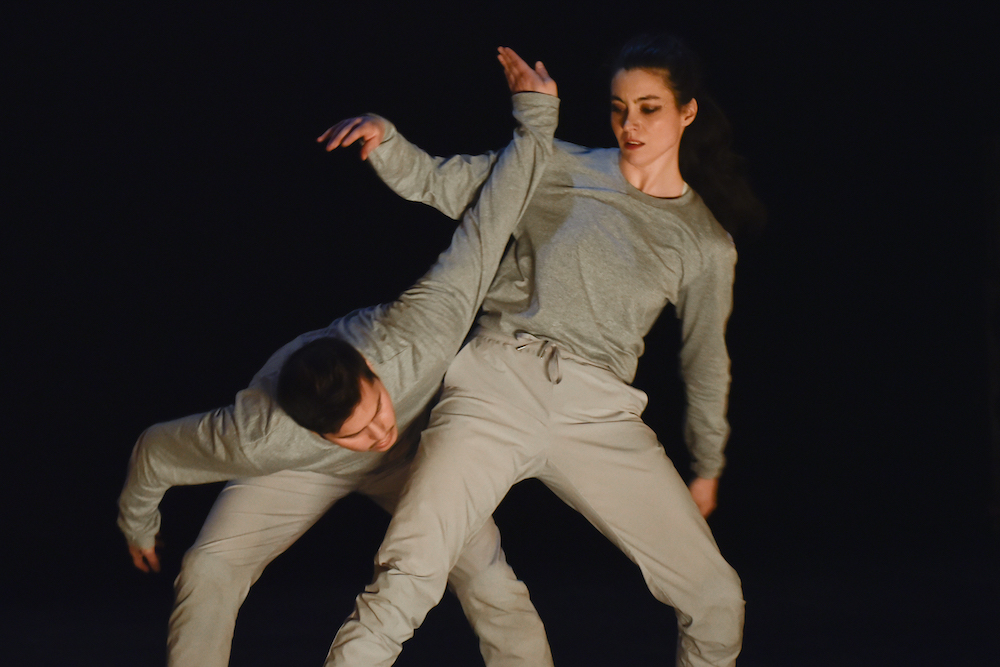
DS Did you have to learn anything new when presenting a digital festival?
MJ For me, the big challenge was the opening cocktail. We did it on Zoom, which I didn’t know [well]. Switching and sharing screens, [turning] microphones on/off for different animators, video volumes… it was stressful like a real opening. But everything went well, and everybody was really happy. It was a success.
JB Since we had so little time to put together an online edition, we were not able to organize a live Twitch or streaming [event] for every activity. We kept it pretty simple, sharing video, pictures or audio tracks directly on Facebook. The use and knowledge of social media became more crucial than ever.
DS Can you tell us more about your partnership with CanAsian Dance/KickStart Festival?
Khosro Berahmandi KickStart was one of the most exciting elements of our twenty-fifth edition.
The idea came from Denise Fujiwara of Fujiwara Dance Inventions, who proposed a dance contest that encouraged Canadian Asian choreographers to develop and present a short work that offered a new direction or a constructive change in their approach to choreography. We targeted Canadian Asian choreographers from Ontario and Québec, and from the submitted applications, two choreographers from [each province] were chosen by a jury composed of the artistic directors of the three organizations.
Festival Accès Asie has developed a new element in its programming that includes the creation of partnerships and exchange programs with cultural organizations outside the province of Québec. With these partnerships/exchanges, the FAA wishes to create artistic meetings between artists from different provinces and present the works in the chosen province and Montréal. For our twenty-fifth edition, we planned to inaugurate this component with a partnership with Ontario.
Unfortunately, the Festival KickStart 2020 remains unseen as both performances in Toronto and Montréal were cancelled. Even though we presented virtual [works] of the four chosen artists, none of them had a chance to mount [their new] shows and record [them]. We are hoping to be able to present these shows later, when life goes back to normal.
DS How have audiences been responding to the virtual festival?
JB When we share video, audio tracks or pictures, the momentum is not the same [as being in person], but in general, the reception [has been] really good. Our audience is pretty receptive. For the opening cocktail, we had about seventy-five people participating and attending the ‘meeting.’ I think that our audience was happy to be able to attend something live and to be part of a collective moment. I guess that is what is most missed: to have a real feeling of being together.
~
Keep an eye on the Festival Accès Asie website for news of when this year’s postponed live performances will take place.
Tagged: Asian, On the Ground, All
